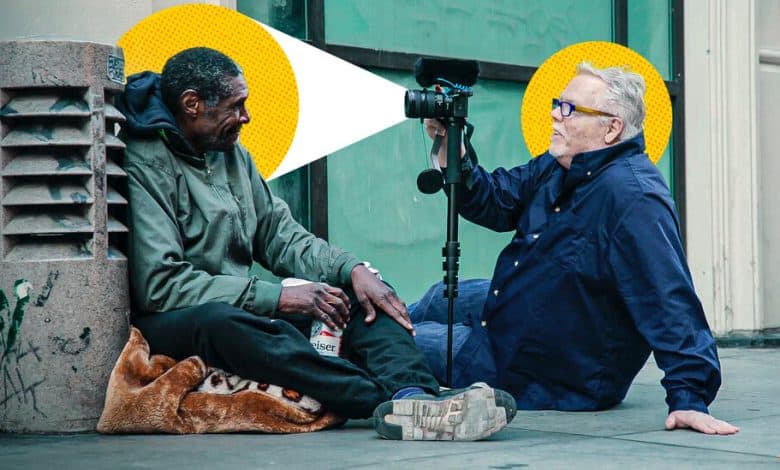Criminalizing Homelessness Won’t Make It Go Away

Supported by
SKIP ADVERTISEMENT
Criminalizing Homelessness Won’t Make It Go Away
-
Share full article
By Mark Horvath, Adam Westbrook and Lindsay Crouse
Mr. Horvath started the YouTube channel Invisible People. Mr. Westbrook is a producer and editor with Opinion Video. Ms. Crouse is a producer with Opinion Video.
If you live in one of America’s cities, you probably see homeless people all the time. You might pass them on your way to work. Maybe you avoid eye contact. If they ask you for money, maybe you pretend you didn’t hear, and walk on by.
But what if you stopped and listened to what they have to say?
As you’ll see in the Opinion video above, you might find their stories of landing on the streets strikingly relatable. Such accounts reveal a hard truth about our country: Amid an affordable housing crisis, where 70 percent of all extremely low-income families today pay more than half their income on rent, becoming homeless is easier than we’d like to think.
That’s what Mark Horvath discovered firsthand in 1995, when he lost his job and wound up homeless for eight years. He started interviewing people on the street in 2008, and began sharing those stories on his YouTube channel, Invisible People. He wanted to try to help viewers who might ignore their homeless neighbors see them not with scorn, or indifference, but empathy.
These stories are even more important today, as a record number of people experience homelessness and face increasing threats from the law. On April 22, the Supreme Court is set to hear the case of Johnson v. Grants Pass, the most significant case in decades about homeless people’s rights. The case will determine whether cities can arrest or fine the homeless — even if there’s no other shelter. As the homeless plaintiffs wrote, this would be “punishing the city’s involuntarily homeless residents for their existence.”
Every homeless person’s path is complicated, and in this video, we haven’t remotely captured anyone’s whole story. Yes, some are addicts, some are mentally ill, some have made unwise choices, and some are simply unlucky. Some are many of those things. But all of them argue that in the hardest moment of their lives, they have been largely abandoned, and even punished, by the rest of us. So we hope you’ll do more than dismiss, or judge, the people in this video, and instead listen to them.
Mark Horvath is the creator behind the Invisible People YouTube channel. Lindsay Crouse (@lindsaycrouse) is a writer and producer in Opinion. Adam Westbrook is a producer and editor with Opinion Video.
Opinion Video combines original reporting with creative storytelling to produce visually transformative commentary. Pitch a video Guest Essay here.
The Times is committed to publishing a diversity of letters to the editor. We’d like to hear what you think about this or any of our articles. Here are some tips. And here’s our email: [email protected].
Follow The New York Times Opinion section on Facebook, Instagram, TikTok, WhatsApp, X and Threads.
